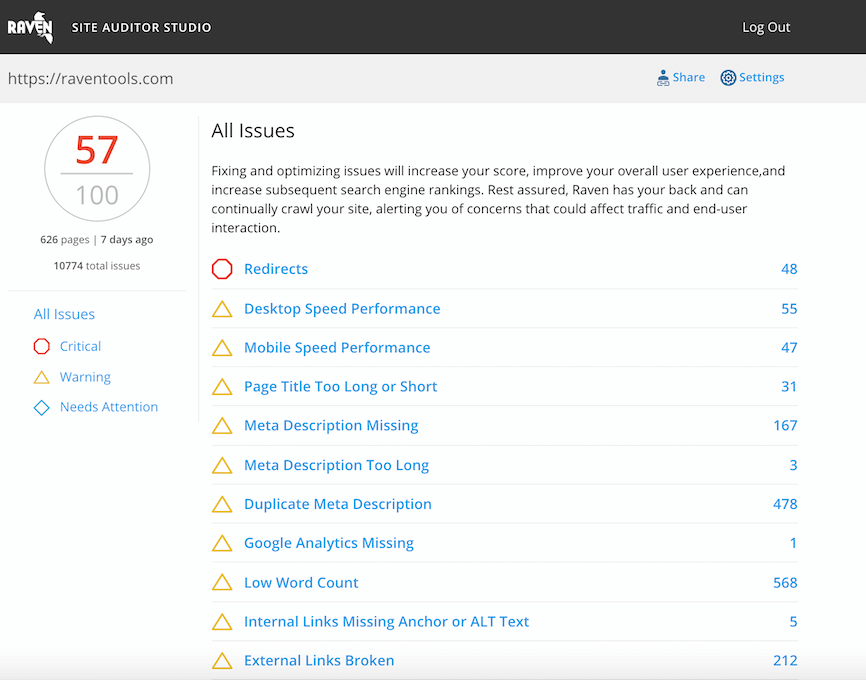Update: October 8, 2018 Google announced it will be shutting down Google+
Google released +1 (pronounced “plus one”) yesterday, and search engine optimizers are already wetting their pants in excitement. +1 gives people with Google Accounts the ability to vote up (also known as Facebook Like) a page. Except in this case you do it in the SERPs!

Google +1 Button
Google’s decision to add +1 to the search results is somewhat bizarre. It makes sense to click the back button and mark something as spam (blocking it), but it doesn’t make nearly as much sense to go to a relevant site, and then go “wait a second, I gotta go back and plus one this thing in the SERPs!” Perhaps if you search for something you’ve already searched for before, the SERP might provide a good chance to share with your friends before proceeding to the site, but I don’t think that’s going to be a typical use case.
Maybe it’s a trap!
Perhaps including the +1 button is a trap for Internet marketers. Its design almost beckons people to try and game it.
While there will certainly be crude attempts to game the system, like fruitless attempts to use Mechanical Turk, there will still be highly effective immediate and long-term exploits to this system. Simply put, adding one more public input creates one more option for unnaturally influencing the system. I would dare say that it’s only a matter of time until a company like Subvert and Profit supports +1 voting and other private networks of marketers have the system sufficiently figured out.
Reputation management is another example of how +1 may be taken advantage of. One of the main goals of reputation management–as it relates to SERPs–is to try and remove negative search results. I could easily see a reputation management campaign employ a diverse army of real users to randomly +1 different results in the SERPs, except for the search result they’re attempting to push down and off the first page.
Is +1 the next Buzz?
Assuming the +1 initiative survives the Google experiment—and I believe it will, because the AdWords team is banking on it big time—I’ll be surprised if the +1 voting option remains the same as it is now in the SERPs. I think usage monitoring will show that it’s distracting and unnecessary, and as I said before, will be more of a nuisance from marketers than a help for users. Instead, I think it will be relegated to the same type of link that the Personal Blocklist extension creates on search results.
A better solution would be to make the functionality optional and tie it to a Chrome extension. A Chrome extension makes more sense, because then a user can click on the like +1 button on the Chrome toolbar if they like the page they visited (instead of going out of their way to go back to the search result page to vote for it). Hopefully, with the introduction of web page +1 buttons, and a Chrome extension, the +1 button on SERPs will be a thing of the past.
+1 and future SEO
The social influence on SERPs is interesting because it’s like an algo affecting an algo affecting an algo. For example, I have no doubt that Google has created their own private social graph of every social network they’ve scraped crawled. Then based on what is being liked, +1’d, tweeted, LinkedIn’d and puked, they cross analyze that data with who is participating in the social mention regurgitation. Then that data is probably made into individual metrics for each page, which contribute to an overall search quality algorithm. The end result will be a small influence on the overall ranking algorithm, and any hint of correlation will most likely come from the fact that the content is simply popular, it has been promoted/linked to by several trusted sites, and/or the site that the page resides on already performs well.
For me, the most intriguing change that will occur from +1 is personalized search coupled with visual indications of friends who have shared a search result. In a perfect Google world, everyone will have a Google account, and everyone will participate in liking pages using +1. However, in doing so, the SERPs will be a gigantic mess—at least to Internet marketers. Tracking ranking results would become truly obsolete, and a focus on participating in either massive social groups, or large niche groups, would become a core task for search engine optimizers. Fortunately, it’s not going to happen.
The average user—if you’re reading this, that’s not you—isn’t giddy about +1. They just want to search and find what they’re looking for, and they won’t be clicking back from a site to click on the +1 button in the SERP. And they probably won’t have any type of organized network of Google friends, at least not like the ones they have on Facebook.
All-in-all, I see +1 for SEO as having some degree of influence on SERPs, but nothing significant, unless of course you’re counting your own circle of friends and personalized search. The power of social is awareness, and awareness breeds increased traffic and conversions, and increased mentions and links. The point of sharing socially is to increase the chance of someone mentioning and linking to you. With more natural links, the better your site will perform in the SERPs.
My observations of how SERPs have been changing indicate a focus on quality over quantity. Social interaction with pages, like the use of +1, will be used simply as one more factor for determining the quality of a page, and ultimately where Google’s algorithm thinks it should rank. However, the notion that the use or promotion of +1 will be required to achieve high rankings, or will be a shortcut to perform better in the SERPs, is absurd.

Analyze over 20 different technical SEO issues and create to-do lists for your team while sending error reports to your client.





with Google’s ability to data mine… I don’t doubt for a minute they have already such a system – at least the ability to write a simple script to aggregate that data from their servers.
I’m not doing much with it when it first comes out – I’ll get a few +1’s here and there and just sit and wait… may hammer a few burnable domains and see what happens.
@Chuck, same here. Once I can put it on a site, I’ll do some of my own testing on a few test sites.
Great post Jon.
Yeah, I honestly don’t see this as being some huge, groundbreaking change that’ll make me shift my marketing approach. My first thought was also that it seemed ripe for gaming. I can just imagine all the fake google accounts being set up in mass as we speak to prep for a plus 1’ing free for all.
It just doesn’t seem intuitive to me to have it in the SERP results. LIke you said, who’s ever going to actually take the time to click back and +1 something? Having a button on your actual page makes more sense and then I guess they could aggregate that data a display the result of how many +1 it has the next time it comes up in a SERP result, but if I already knew I was going to +1 a result before I visited the page, then I probably already knew it was a good page for what I was searching for in the first place. And If I already knew it was a good page for what I was searching for, wouldn’t I just go there directly rather than doing a search?
As it’s set up now with only being able to +1 in the SERPs I think it’s a pretty useless feature. Now a -1 button I may be a little more intrigued with so I can hit that every time another crap site comes into my SERPs. That’d be nice. And I’m sure nobody would ever misuse a -1 button, no? haha
“and they won’t be clicking back from a site to click on the +1 button in the SERP”
I’m not sure that’s actually the major intended use for the +1. Google will be releasing a button like the FB Like or Twitter button that they will recommend be implemented on the sites themselves. Unless I’m reading it wrong the +1 reco will happen on the site for the most part rather than on the SERPs. I agree that this is likely going to be a pretty minor signal for now and will be one of many user behavior metrics they take into account in the algo.
thing is, I don’t think there is anything that should make us believe that the +1 will actually impact ranking results. I’m assuming you even have to be connected to the people clicking the plus one in order to see the numbers (through google buzz or twitter or something). This feature seems very similar to the results that show friends tweets, etc.
As for the first part where you talk about the use of the button. It looks like it will also be available on actual websites so that the users can +1 the site after clicking to it.
https://services.google.com/fb/forms/plusonesignup/
@Adam, indeed, nobody would ever misuse a poor little ‘ol innocent -1 button.
@Rob & @Peter, I know, that’s why I said, “Hopefully, with the introduction of web page +1 buttons, and a Chrome extension, the +1 button on SERPs will be a thing of the past.” 🙂
@Peter, I forgot to include a link to Google’s Answer to Facebook Likes: +1 in the blog entry. That’s where Om Malik updated his post yesterday that states, “A company spokesperson says the company hopes to test adding these +1s to search results to help a result rank higher. You can also undo your +1 click.” My main premise is that if they do, I don’t think it will be all that impactful. Also, thanks for that signup link!
@Peter I think your right…in a way. While the +1 may not directly impact results, I think the indirect effect (if it takes hold) could be significant.
Let’s say you are looking to visit Baton Rouge and would like to find an awesome Cajun restaurant. If we are in the same social circle and I think Boutin’s is the Bee’s Knees (because it is, not because I am affiliated in any way), and therefore +1’d it, you would probably click that link knowing I am from the area and have exceptional taste in food. The more people who click on this link based on their social circle would improve the click through rate of the site which would have some effect on the rankings.
I know that is a roundabout way of looking at it but if +1 does what they want this scenario is not unlikely.
I believe I did read in the Google blog as well that Google wil show results from outside your social netwok from time to time as well:
“And even if none of your friends are baristas or caffeine addicts, we may still show you how many people across the web have +1’d your local coffee shop.”
To me it looks like a +$1
I’m not excited. I well remember KNOL and Buzz is just busted. +1 doesn’t seem to bring any benefit. If Google really wants to make some impact in Buzz/Vote market then it has to bring it to the public and not to hide behind login.